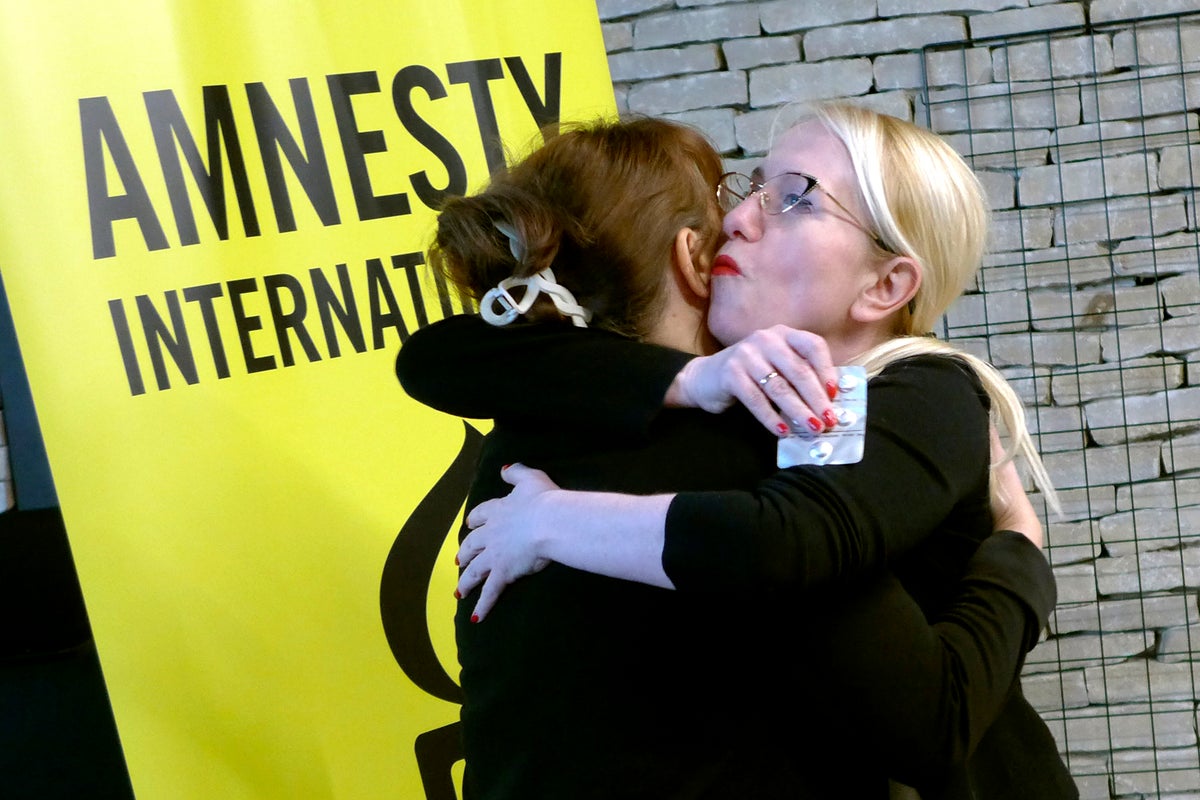
The way Justyna Wydrzyńska sees it, Ania was a victim of domestic violence just like she was. Another child and she’d be trapped. It was 2020. The pandemic lockdowns. Everyone worried that Poland’s borders might close, halting travel and postal services.
Looking to help someone she identified with, Wydrzyńska gave Ania the abortion pills she kept on hand for herself.
“I just sent the pills, just shared them, because I thought it would be good for her to have this tool and decide whatever she wants (and can) leave without another kid and be able to get free from this violent relationship,” Wydrzyńska told The Associated Press in Brussels on Thursday.
“I knew for myself, the moment when I got pregnant again, living with a violent partner, that if I got stuck with another child, I will never (escape) from this marriage,” she said, explaining why she first bought the tablets. “I really see the same story in our lives.”
But Poland’s justice system sees the situation differently. Last week, a Warsaw court convicted Wydrzyńska of abetting abortion by providing Ania — the name used by Polish media to identify the domestic violence victim who already had one child — with abortion pills. Ania’s partner turned them both in.
Abortion is illegal in almost all cases in Poland, a predominantly Catholic country with a deeply conservative government. Rare exceptions are granted when a woman’s life or health might be in danger, or if a pregnancy results from rape or incest.
Ending a pregnancy due to congenital defects of the fetus was allowed until a top court ruled in 2020 that those grounds were unconstitutional.
Some Polish women travel to countries like the Czech Republic, Germany and the Netherlands to obtain abortions. Others order pills from abroad to terminate their pregnancies. Possessing abortion pills, and taking them, is not outlawed, but providing the medication, or helping someone to obtain it, is a crime punishable by up to three years in prison.
Wydrzyńska, a mother of three, co-founded the Abortion Dream Team in 2016. The grassroots organization provides Polish women with information and support, including how to acquire abortion pills. Human rights activists see her case as a precedent. They fear it will discourage others like her from helping women to terminate their pregnancies.
“Justyna is the first activist to be convicted for providing abortion support. The Polish authorities’ prosecution against her is shameful,” said Eve Geddie, director of Amnesty International’s European Institutions Office.
The Abortion Dream Team says official statistics claiming that 107 abortions were performed in Poland — a country of nearly 40 million people — in all of 2021 are laughable. The group says that each day it helps around 100 women get access to pills and another six or seven to travel abroad for abortions.
Since the war started in Ukraine just over a year ago, millions of people have sought refuge in Poland. Allegations of sexual violence committed by Russian soldiers abound. The organization says it has assisted around 2,000 women who claimed to be Ukrainian.
“We don’t ask questions,” said Natalia Broniarczyk, another Dream Team activist who was in Brussels with Wydrzyńska seeking financial support from the European Union.
The next step for Wydrzyńska is to appeal. Instead of prison, she was sentenced to perform 30 hours of community service a month for 10 months. She says she’s received messages of solidarity from many women, including offers to serve the sentence in her place.
It's unlikely her appeal will be heard soon. Poland is in campaign mode ahead of elections expected in the fall. Polls show the conservative Law and Justice party, which has governed the country since 2015, winning the most votes but falling short of a majority in parliament.
Surveys also show that most Poles support more liberal abortion laws, and court restrictions on abortion rights triggered the largest street demonstrations in post-communist Poland. But the ruling party’s deeply conservative positions often play well with certain parts of the electorate.
“The judge who convicted Justyna was irregularly appointed and given a promotion the very same day as she handed down the verdict. We have no doubt that Justyna’s prosecution was politically motivated,” Geddie said.
The hearings were wearing and unpredictable, Wydrzyńska said. Well after the trial started, prosecutors introduced as new evidence a video of remarks she made to the Polish parliament about abortion.
“I feel very tired, because it demands a lot of strength to face this jurisdiction system … but in the same time I’m so angry,” she said, speaking in English. “It is the situation when you play with somebody with cards and his cards are marked somehow. I feel like I was cheated.”
Ania had to testify in court. Wydrzyńska says she is proud of her for taking the stand.
“She was so brave, really, and she was so honest,” Wydrzyńska said. “It showed that our work is so important, and it was the moment I realized that ... even if I receive a jail sentence, we have to do it, no matter what.”
One day she would like to meet Ania, this woman she identifies with so well. “I hope there will be a moment soon where we have this opportunity to sit in a quiet place and (share) our own stories,” Wydrzyńska said.







